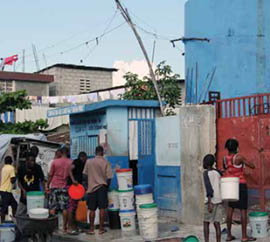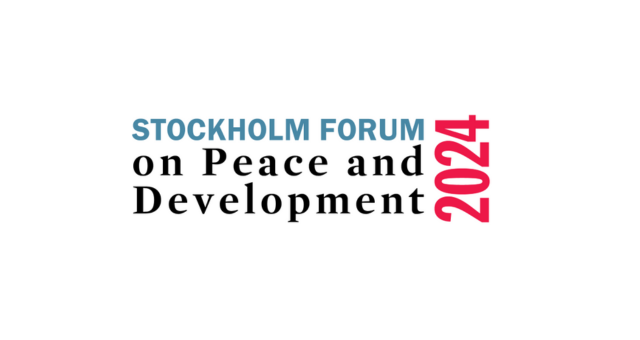Accountability tool can help Duterte in completing housing projects for Yolanda victims

The government is eyeing to complete its housing efforts for communities affected by typhoon Haiyan—one of the strongest storms to make landfall in recent history—in December 2013. An accountability tool could help President Rodrigo Duterte improve the quality and ensure the adequacy of the rest of the housing units that will be distributed to families this year.
The UP Center for Integrative and Development Studies (UPCIDS) highlighted this in the forum “Housing and Challenges to Housing Service Delivery under the Duterte Administration,” held on 1 September 2016 at Microtel-UP Technohub, Quezon City.
“Assessing the accountability of government officials and other actors in the provision of shelter post-disaster will enable President Rodrigo Duterte and our new housing czar, vice president Leni Robredo, to not only prevent the misuse of our resources but will also make housing development a barometer for true public service,” Dr. Edna E.A. Co, UPCIDS executive director, said.
UPCIDS, in their book “Building Back Better: A Democratic Accountability Assessment of Service Delivery After Typhoon Haiyan,” presented lessons and key recommendations on assessing the democratic accountability of duty bearers—the national and local government units, and claim holders—the communities, in addressing the housing needs in Guiuan, Eastern Samar and Palo, Leyte; these are areas most devastated by Haiyan in 2013.
In the book, UPCIDS pointed out the important role of local government units (LGUs) in setting up a mechanism to respond to disaster needs and incorporate the accountability mechanisms of answerability, responsiveness and enforceability in service delivery in disaster management.
The above principles complement the framework developed by the International Institute for Democracy and Electoral Assistance (IDEA), an intergovernmental organization that supports democratic reforms.
UPCIDS wrote about the experiences of the Guiuan Development Foundation, Inc. which conducted the assessment of the shelter provision in the municipalities of Guiuan, Eastern Samar and Palo, Leyte.
Through a series of focus group discussions and workshops with members of the communities in 2015, the assessment team found out that the levels of accountability varied in both municipalities. In Guiuan, a Guiuan Rehabilitation and Recovery Sustainable Development Group was tasked to develop a Recovery and Rehabilitation Plan for the municipality. The plan, however, was never completed.
Other mechanisms such as the Housing Board were mandated to come up with a Shelter Plan, but it also did not come into fruition. The National Housing Authority, on the other hand, asked the LGU to come up with a Local Inter-Agency Committee, but it did not materialize.
“This pattern of the non-creation and recreation of mechanisms, and the non-completion of shelter plans led to confusion over which parties should be held accountable, particularly with regard to ANSWERABILITY for service delivery,” UPCIDS said.
The book, however, noted that there were signs of responsiveness. The Guiuan LGU initiated steps to resettle families who lost their homes and shouldered the cost of buying the land for the relocation site. The Guiuan Rehab Group also helped expedite the passage of local laws needed to facilitate rehabilitation efforts, while the Guiuan Rehab Plan was disseminated for review.
A better communication system should be installed though in order to communicate the correct beneficiaries for housing services and to show that the housing units will be of decent quality.
“The feedback from the project study identified a need to strengthen the RESPONSIVENESS between donors and the government so that the gap between the agencies that build and those that manage the permanent housing facilities can be reduced,” the UPCIDS said.
There are also no uniform standards for building homes and their design requirements, securing building permits, amenities and costs.
Enforceability, on the other hand, was also a problem as sanctions and penalties for the failure to implement and deliver shelter services were not put in place.
In Palo, UPCIDS noted that there were accountability mechanisms and policies that have been developed, as well as bodies that have been identified to oversee shelter distribution and management. A shelter plan has also been finalized with the help of international agencies. The plan, however, was not implemented in the absence of committees. The numbers of houses that were built were also inadequate.
The UPCIDS hopes that their assessment could encourage a “rethinking of how traditional tools for accountability such as user outreach, ad hoc user meetings, publication of performance data and others could be introduced and better communicated and disseminated.”


